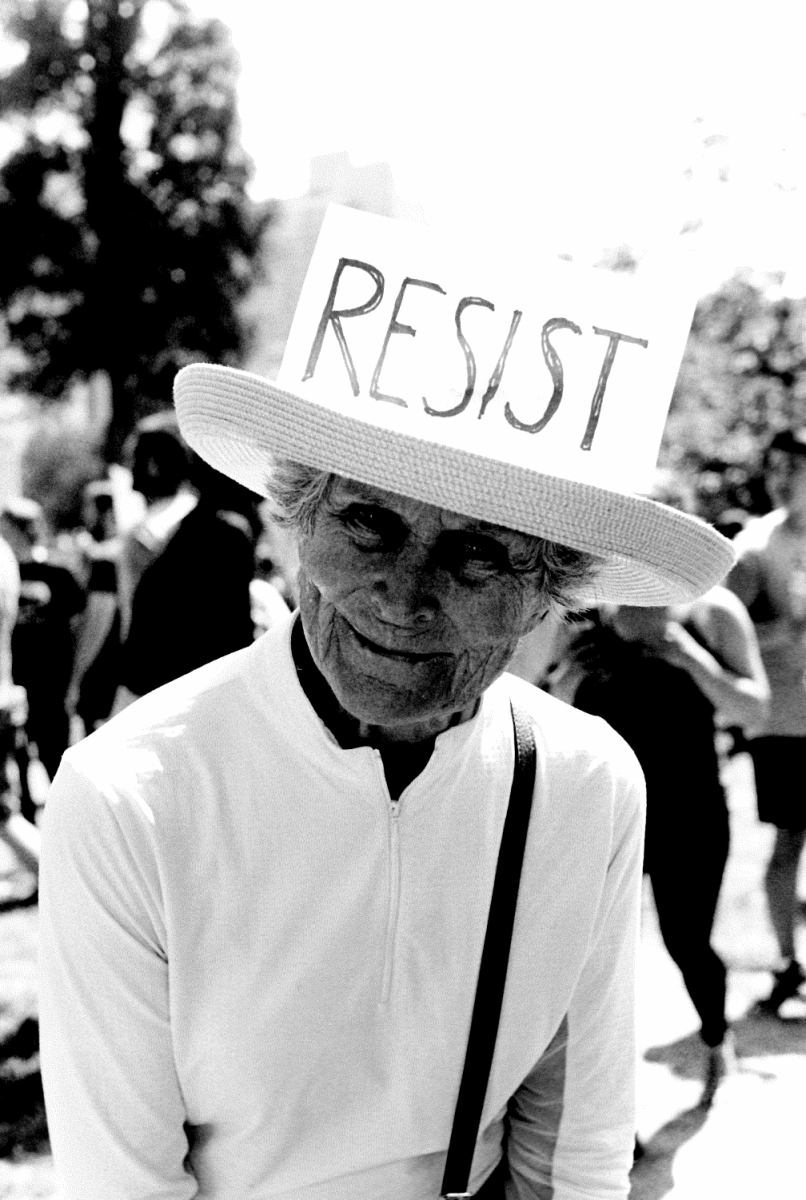Reacting to Charlottesville
The Past That Is Still Our Present
Many counter-protesters brought signs to show solidarity.
September 28, 2017
August 12th, 1861 marks the first day of one of the most significant battle of the Civil War.
Events on August 12th, 2017, confirmed that ideas from a war fought over the binding of human lives still impact the American experience. On the streets of Charlottesville, Virginia, flags were carried, held in the hands of protesters like knives, reopening old wounds of a legacy many hoped to forget. The Charlottesville riot was no different from the Civil War; many of the people carried the same intentions under a different name.
In 2017, white nationalists cite “free speech” as their call to arms. In 1861, they cited the preservation of an institution that stripped thousands of their basic human dignity. The Charlottesville march was never about free speech, when it was Nazi and Confederate flags that symbolized the attendees’ sentiments.
The Civil War is a three part war. When, in 1861, it was determined that slavery would be contained within the states it already existed in, South Carolina decided that it would no longer be tied to the union, and ten other states followed. To the seceding states, their fight represented an effort to grow an institution of oppression so “integral” to the economy. The second part of the Civil War came three years later, and then it really became about emancipation.
Only now are we facing the final piece—now we must decide once and for all whether we will ever live in an egalitarian union.
The implementation of the Thirteenth Amendment was not enough. The effects of slavery still flourish in 2017. The Civil Rights movement—a movement to expand African American’s access to the terms of the Constitution—peaked in the 20th century but was then brushed under a rug when the topic was revisited. The idea that we live in a “post-racial” society has consumed the minds of the American people and stagnated the efforts of many in the fight for the egalitarian dream.
The rally in August was an unremarkable event in the eyes of those crippled by this nation’s legacy of picking favorites from its own people. The people who rallied in Charlottesville were never tear-gassed, beaten, or riddled with bullets for their struggle, like Black Lives Matter demonstrators. Unlike the Black Lives Matter rallies in Ferguson, New York, D.C, and Cincinnati, stemming from a desire for basic civil rights, white nationalism stems only from the fear of no longer being in power.
White supremacists do recognize their privilege—they seek the proliferation of a system that keeps others down in order to retain their own privilege.
We cannot undo the existence of white supremacy. We cannot undo the existence of racism. We can, however, write the next pages of American history. Each one of us can take it upon ourselves to imagine an America where it is self evident that all men and women are truly equal.
This is the only way that the American people, for the first time, will truly be united.
Of course, this does not mean outright denial of our identities and our differences. By denying the viability of our identity to live within the bounds of a “color blind” society, we do the same thing that white supremacists have done since the fifteenth century. We commit cultural genocide. We rip others of the viability of their struggles, the existence of their history. The Charlottesville rally is a reminder to many that we haven’t moved past racial injustices. Through our response to Charlottesville, we will write the next pages of American history—for better or for worse.
This piece also appears in our September print edition.









